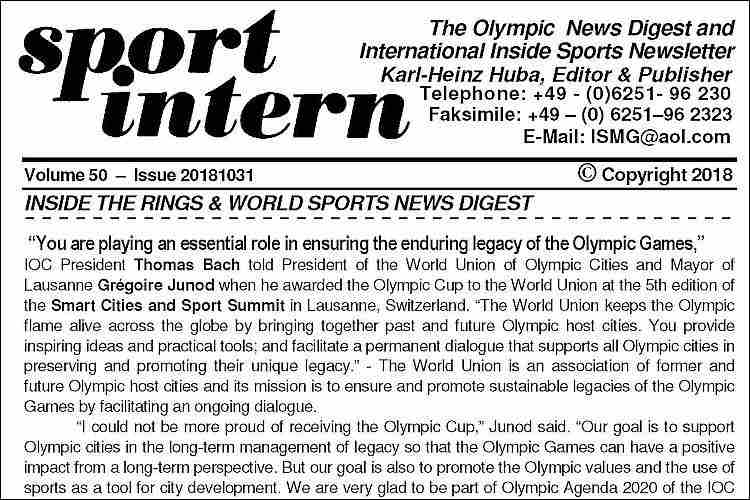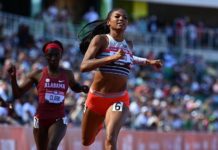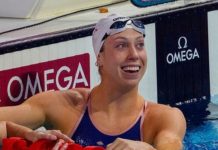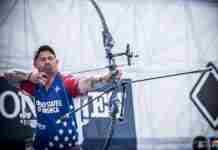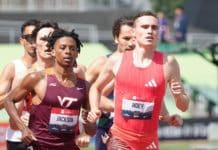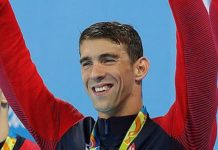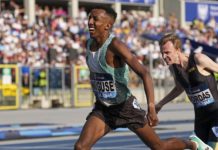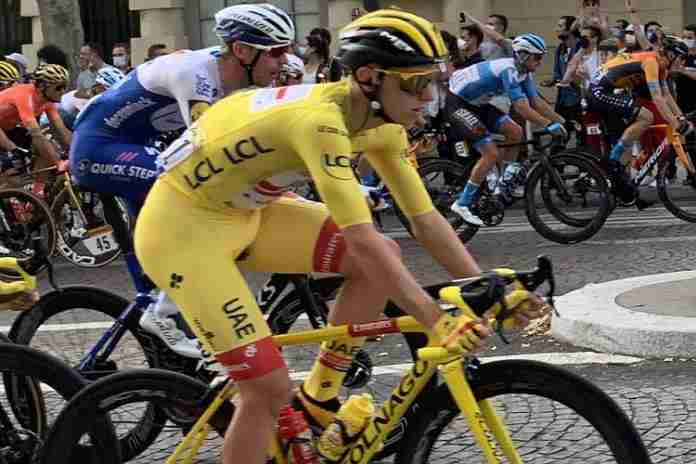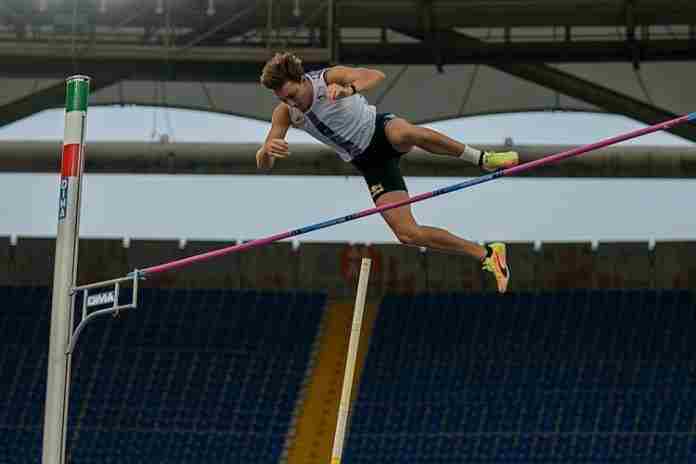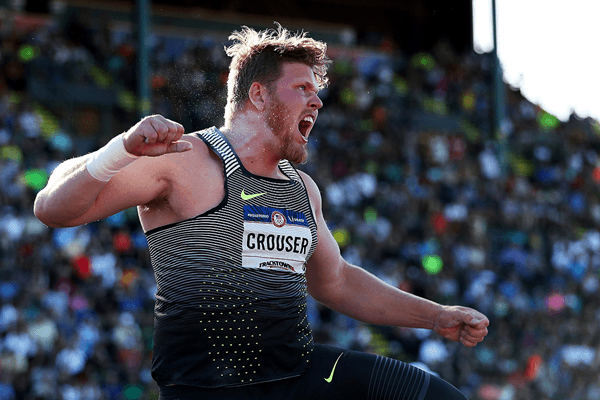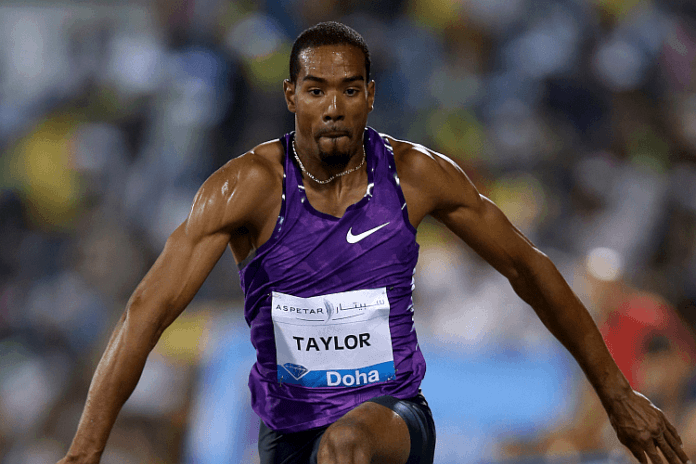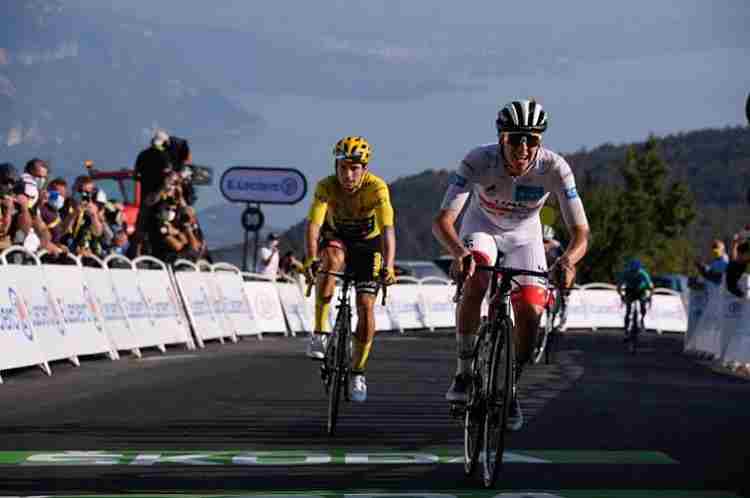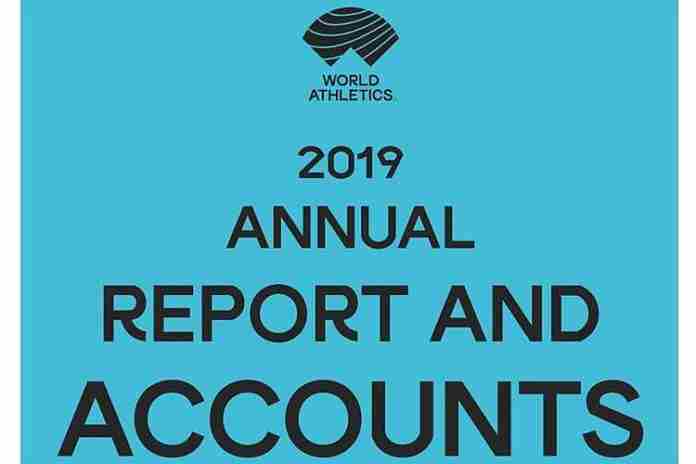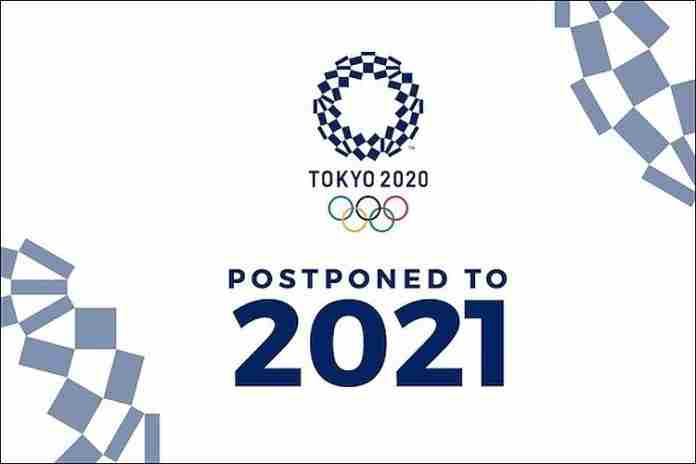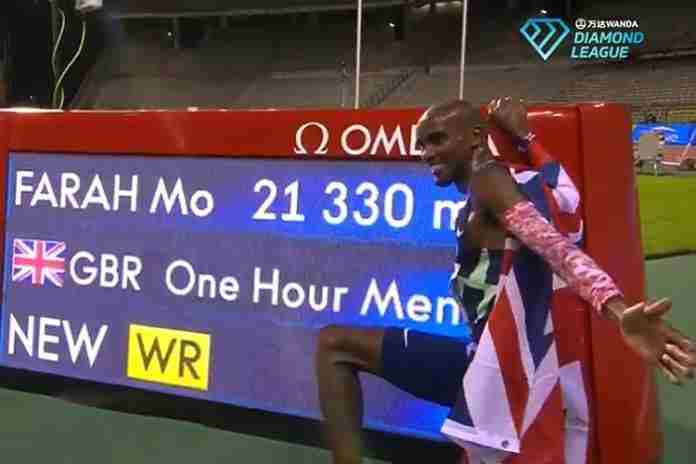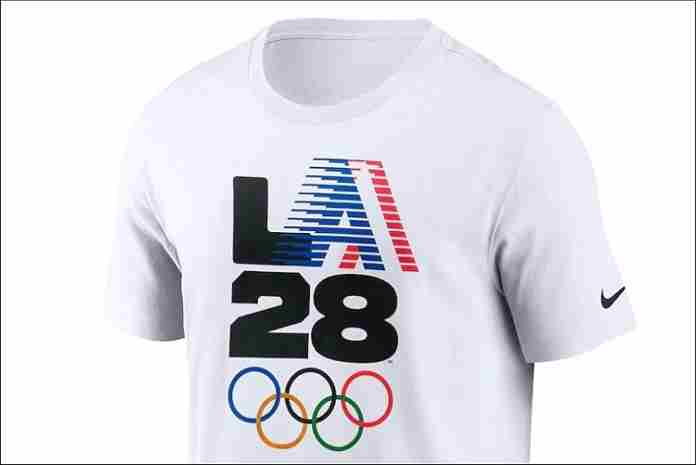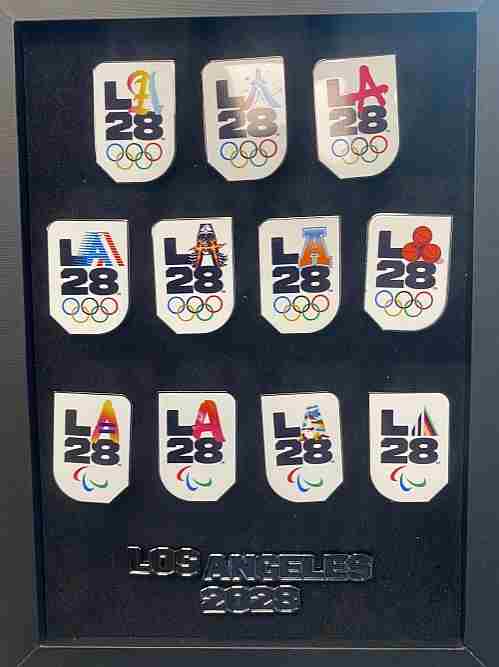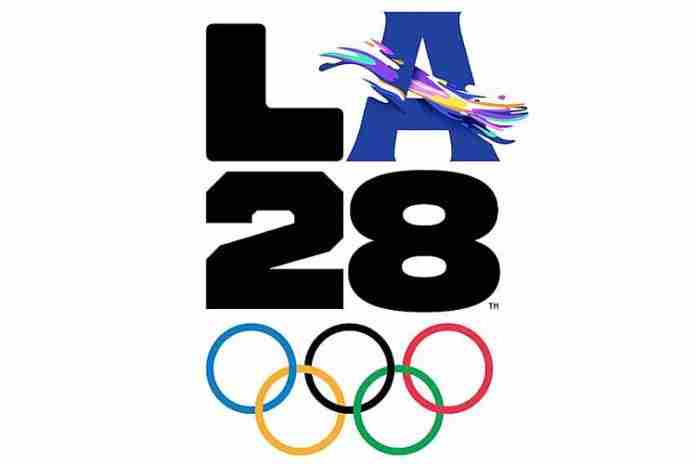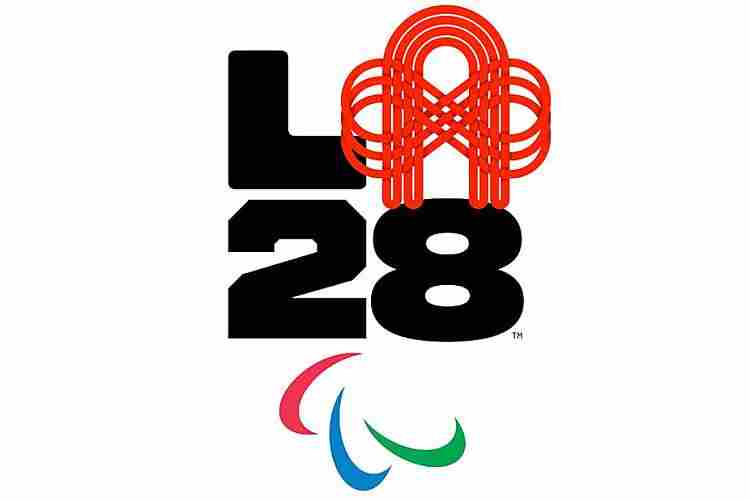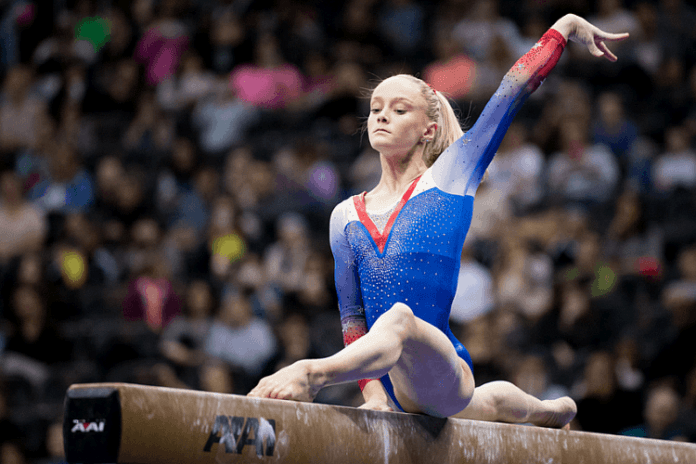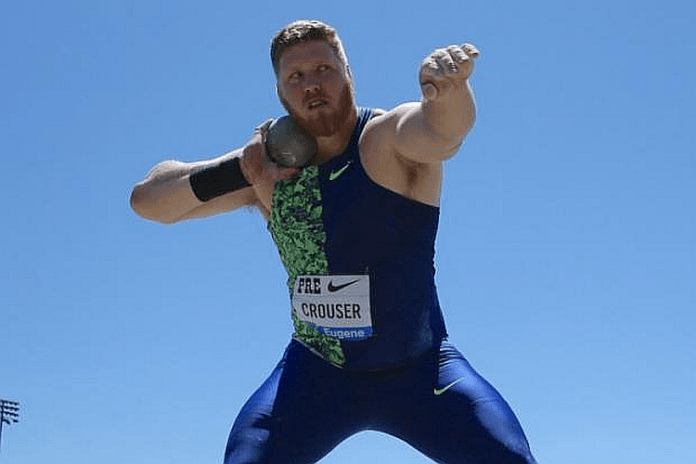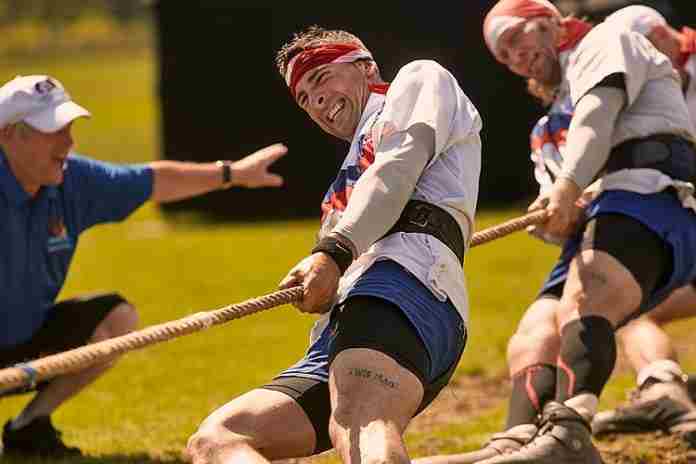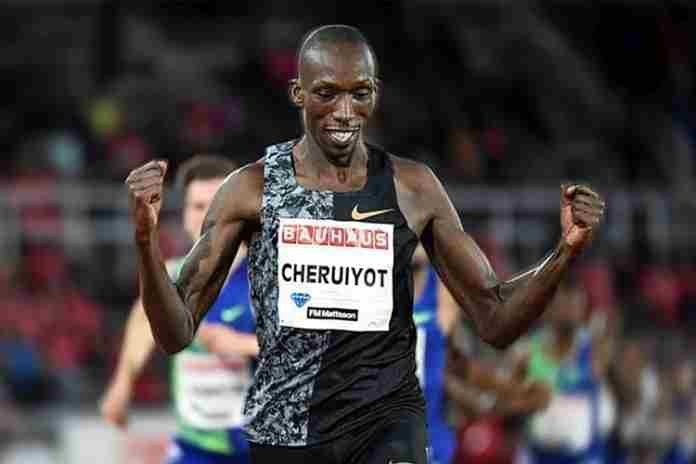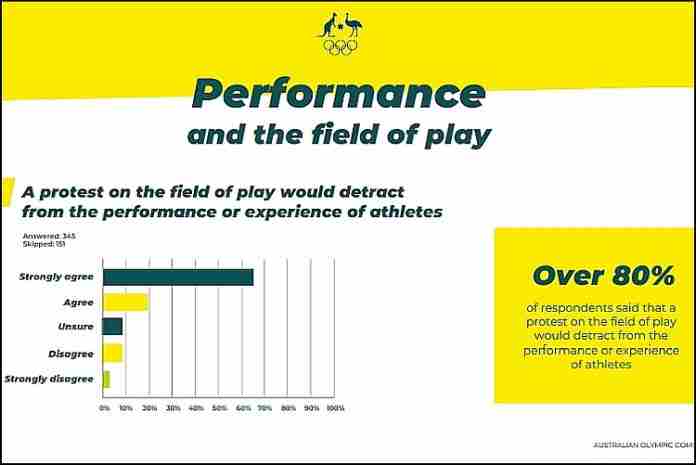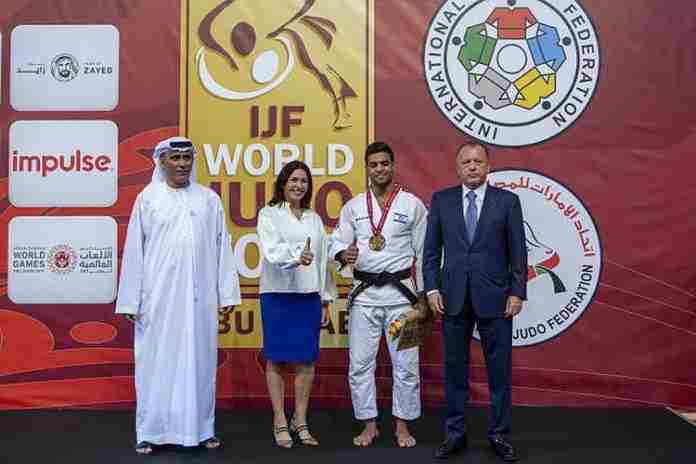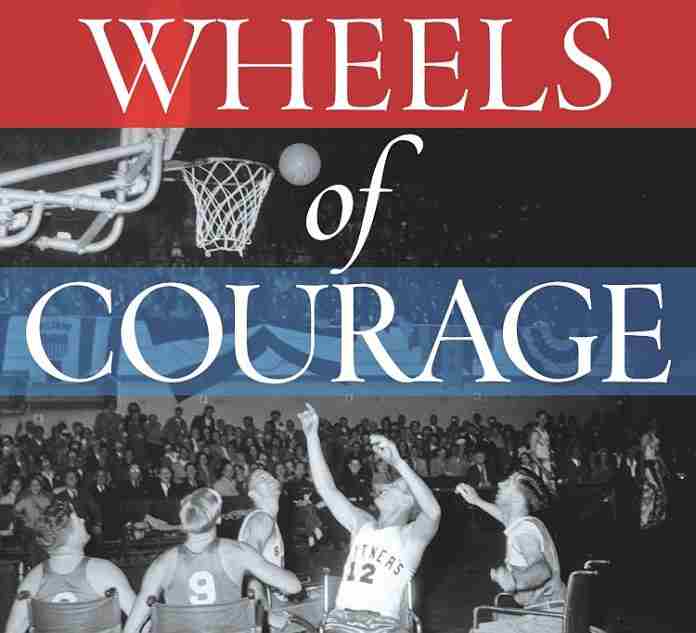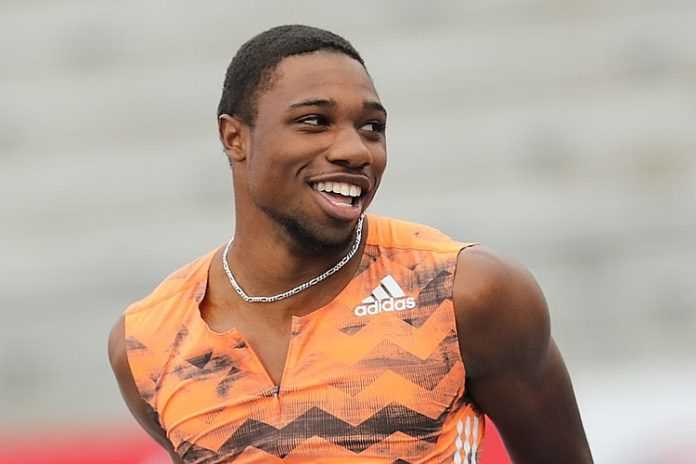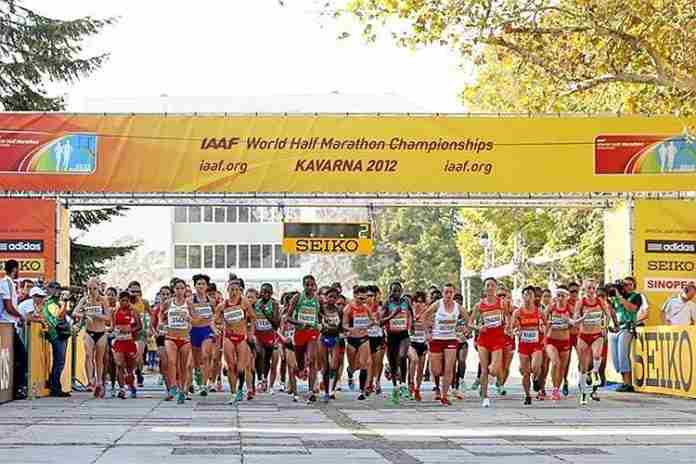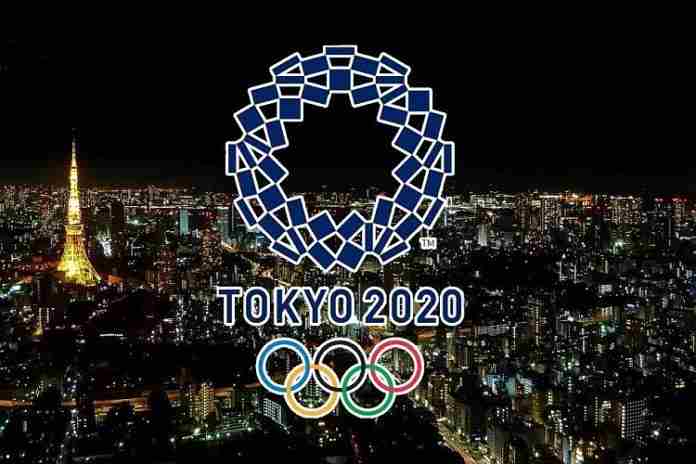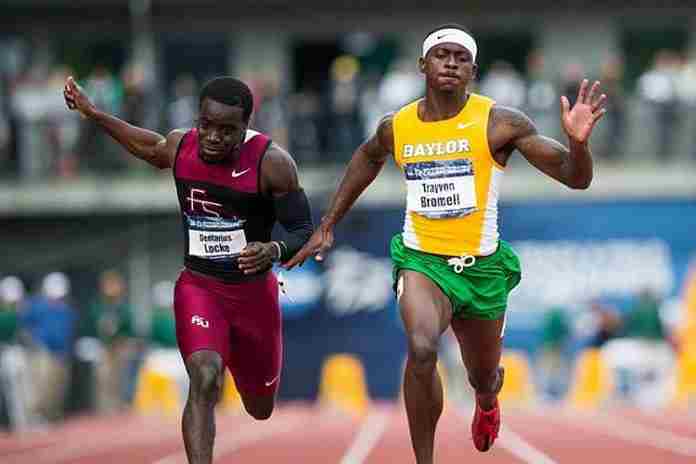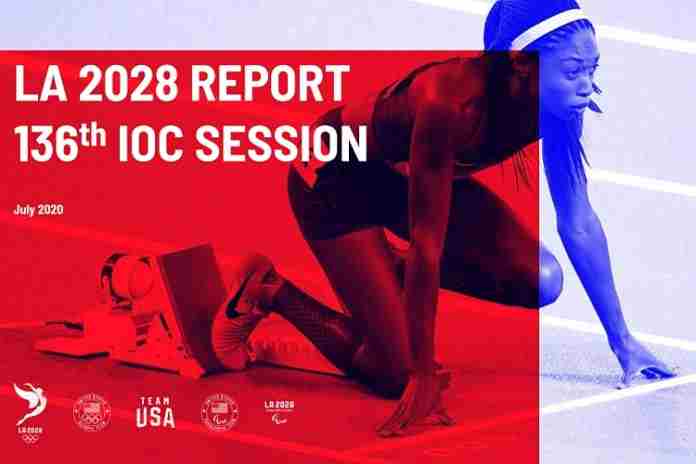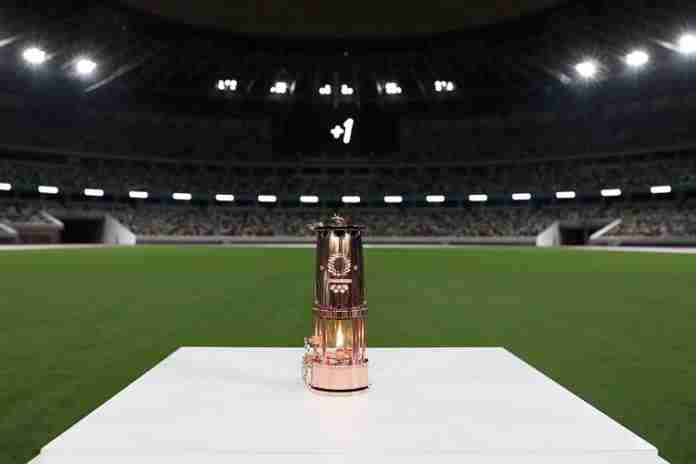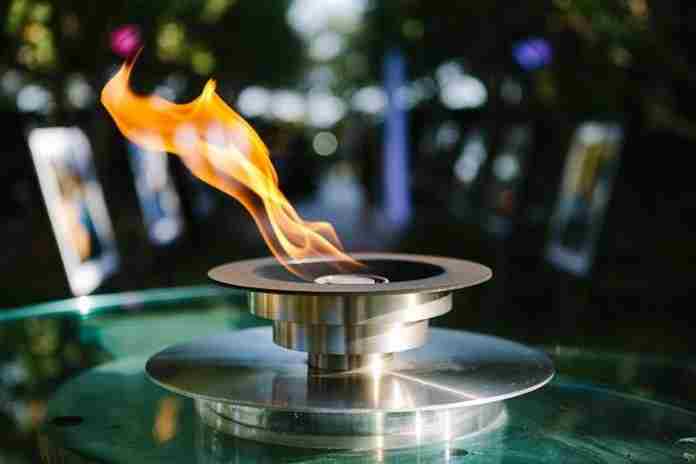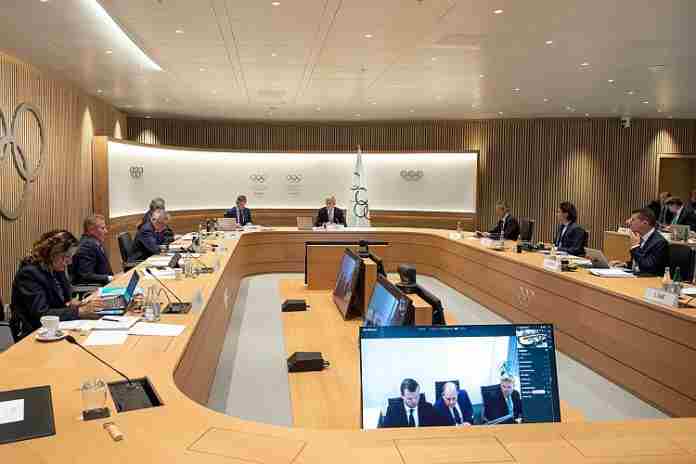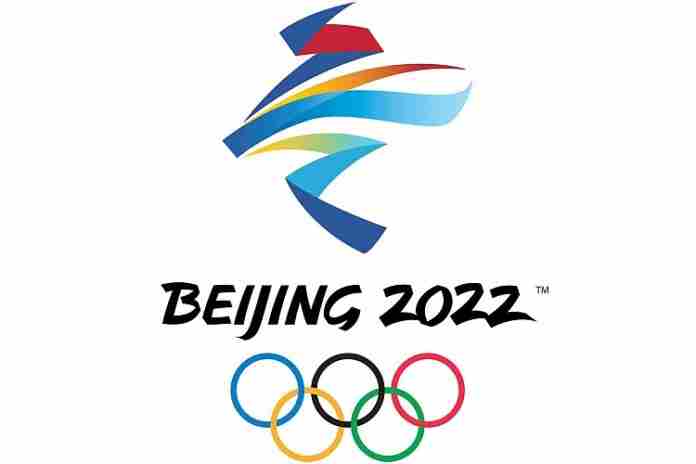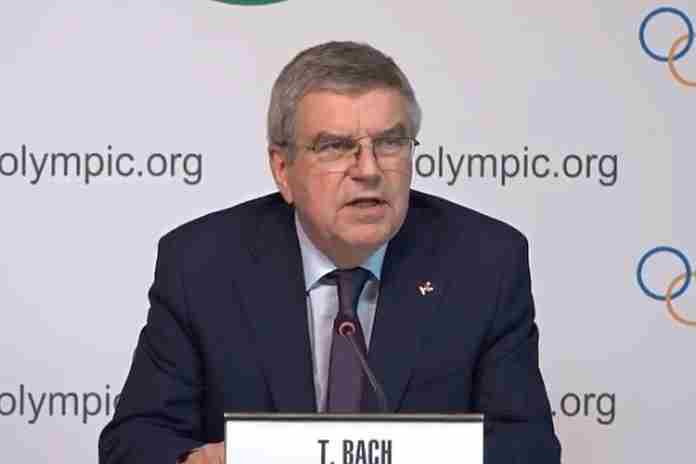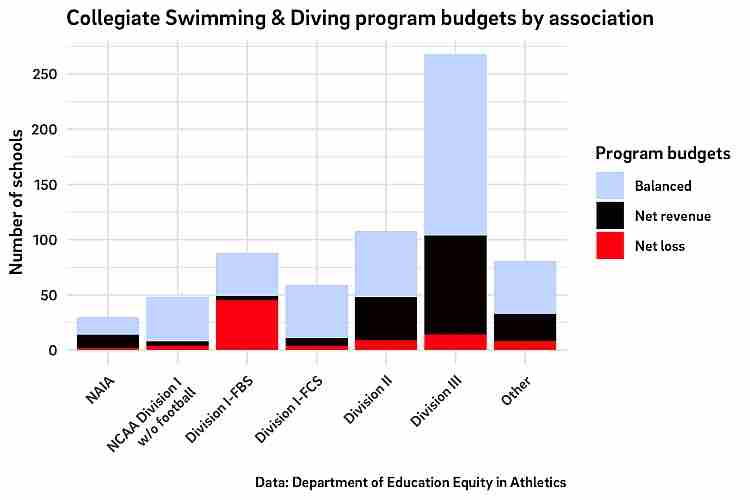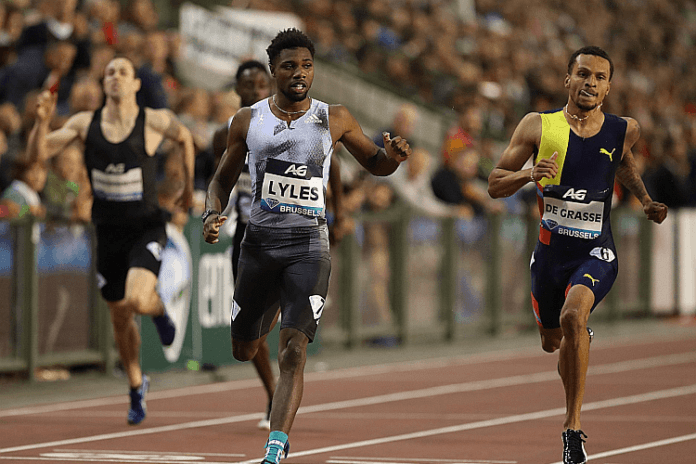(★ Friends: Wow! Your 55 donations over the past few weeks have covered our half-yearly server and support costs. The next bill is coming, so if you would like to help, please donate here. Your interest and support are the reasons this site continues. ★)
The latest news, notes and quotes from the worldwide Five-Ring Circus:
● Athletics ● It was a long time coming, but maybe it was worth the wait for the opening of the 2020 Wanda Diamond League season, thanks to sensational marks in nearly all of the events and a world record in the men’s 5,000 m by Uganda’s Joshua Cheptegei!
There were world-leading marks in 11 of the 14 events on the program:
● Men’s 200 m: 19.76, Noah Lyles (USA)
● Men’s 800 m: 1:43.15, Donavan Brazier (USA)
● Men’s 1,500 m: 3:28.45, Tim Cheruiyot (KEN)
● Men’s Steeple: 8:08.04, Soufiane El Bakkali (MAR)
● Men’s 5,000 m: 12:35.36, Joshua Cheptegei (UGA) ~ World Record
● Men/110 m H: 13.11, Orlando Ortega (ESP)
● Men/400 m H: 47.10, Karsten Warholm (NOR)
● Men/Pole Vault: 6.00 m (19-8 1/4), Mondo Duplantis (SWE)
● Women/400 m: 50.50, Lynna Irby (USA)
● Women/1,000 m: 2:29.15, Faith Kipyegon (KEN)
● Women/5,000 m: 14:22.12, Hellen Obiri (KEN)
The highlight turned out to be a near-solo performance by Cheptegei, 23, the 10,000 m World Champion in 2019 and world-record setter in the road 5 km earlier this year (12:51).
He didn’t just run with the pacesetters, he launched a world-record attempt all by himself, actually running faster laps after the pacers left the track. He ran 59.97 for his penultimate lap and 59.64 for the final lap to finish in 12:35.36, shattering the thought-to-be-safe 2004 mark of 12:37.35 by Kenenisa Bekele (ETH).
He won by more than 16 seconds over Kenya’s Nicholas Kimeli (12:51.78), finishing his final four laps (1,600 m) in 4:00.12 and his last 2,000 m in 5:00.22! Wow! Cheptegei is now the second-ever Ugandan world-record holder on the track, after John Akii-Bua’s stunning 47.82 win in the 400 m hurdles at the 1972 Olympic Games.
Cheptegei said later: “I think Monaco is a special place and it’s one of these places where I could break the world record. It took a lot of mind setting to keep being motivated this year because so many people are staying at home but you have to stay motivated.
“I pushed myself, I had the right staff with me, the right coach. I’m also usually based in Europe, but being based in Uganda with my family was actually great. I will for sure celebrate the world record when I get home.”
The much-anticipated men’s 200 m started with Noah Lyles in his favorite lane seven, raising a gloved right fist during the event introductions. He ran to the lead right away and came off the turn in the lead and then turned on the speed down the home straight for a world-leading 19.76 (wind +0.7 m/s). His younger brother Josephus was strong down the straight as well, finishing second in 20.30. Said Noah afterwards, “I’m just happy to be racing again.”
In the men’s 800 m, World Champion Donavan Brazier ran easily over the first 600 m, took over on the final turn as expected from Canada’s Marco Arop, but with countryman Bryce Hoppel hot on his heels. Hoppel essentially shadowed Brazier throughout the race and although he didn’t have the speed to overtake him, he was right there at the finish and scored a lifetime best of 1:43.23 for second. Brazier improved his world-leading mark to 1:43.15, his third-fastest time ever. Hoppel’s time moves him to no. 7 all-time U.S.
But Brazier wasn’t that impressed, “The time wasn’t the best for me.” Hoppel was happy: “Training has been weird for me because I currently don’t have a team to train with, but running here turned out amazing, a lot better than I thought.”
Kenya’s World Champion Tim Cheruiyot decided he needed to make a statement, and was the only one to run with the pacesetters through 800 m, in 1:51.24. Cheruiyot led three others at 1,200 m in 2:47.64, but even with strong challenges by Jakob Ingebrigtsen (NOR) and Jake Wightman (GBR), Cheruiyot steamed to the finish in 3:28.45. Ingebrigtsen got a European Record of 3:28.68 in second and Wightman was third in a lifetime best of 3:29.47.
Morocco’s Soufiane El Bakkali won the Steeple as expected, finishing with a world-leading 8:08.04, out-lasting Kenya’s Leonard Bett (8:08.78).
In the straight hurdles, World Champion Grant Holloway got out strongly, but it was Spain’s Orlando Ortega who came on strongest over the last three hurdles to grab the win in a world-leading 13.11. Britain’s Andrew Pozzi equaled his personal best at 13.14 and Holloway faded to fourth in a season-best of 13.19. Said Holloway, “13.19 is a good season best. With everything going on, I’ll take it. It is what it is, 2020 is a lot of chaos.”
In the 400 m hurdles,. Norway’s Karsten Warholm stepped on the gas from the start and was way out in front from the beginning. He won easily, finishing in an astounding 47.10, a meet record and the equal-eighth fastest race in history. Only five other men – including himself – have ever run faster! He said afterwards, “This was a very, very good season opener. I felt very strong, things I’ve been working on actually worked!”
Most of the drama in the men’s vault vanished when American Sam Kendricks’s poles did not arrive, so Swedish world-record holder Mondo Duplantis won the event with a clearance at 5.80 m (19-0 1/4). He then cleared 6.00 m (19-8 1/4) and went to 6.15 m (20-2), missing three times at what would have been the highest-ever jump outdoors.
A complete shock in the women’s 100 m, with Ajla del Ponte of Switzerland taking the lead in the middle of the race and running away from Marie-Josee Ta Lou (CIV) and American Aleia Hobbs in 11.16. Hobbs was second in 11.28; Ta Lou was fourth in 11.39.
American Lynna Irby, the 2018 NCAA champ in the 400 m, won in impressive fashion in a world-leading 50.50, passing Wadeline Jonathas – the 2019 NCAA winner – off the final turn, who finished second in 51.40.
The women’s 1,000 m also looked like world-record possibility and reigning Olympic 1,500 m champ Faith Kipyegon took charge with 300 m left and ran away with the win in 2:29.15, the no. 2 time in history, just 0.17 over the world record. Britain’s Laura Muir finished second in 2:30.82, making her the no. 7 performer all-time.
In the women’s 5,000 m, the expected battle between superstars Sifan Hassan (NED) and Kenya’s Hellen Obiri evaporated when Hassan retired with 2 1/2 laps to go. Obiri took over with two laps to go from Letesenbet Gidey (ETH), then lost it again as Gidey took the bell. Gidey strayed from the curb on the back straight and Obiri stormed inside her with a half a lap to go – to Gidey’s surprise – and ran away to an easy win in 14:22.12, her fourth-best ever.
The women’s high jump was an all-Ukrainian showdown as expected, with Yaroslava Mahuchikh out-dueling Worlds silver winner Yuliya Levchenko, with both clearing 1.98 m (6-6); Mahuchikh won with a first-time clearance at 1.95 m (6-4 3/4).
Venezuela’s two-time World Champion Yulimar Rojas won the triple jump as expected at 14.27 m (46-10).
The conditions appeared to be excellent, with a new track and an appreciative crowd – a limit of 5,000 was in place – plus some nifty new lighting effects that were nice to see. More than anything else, the meet was a glimpse of what could have been seen in Tokyo in the Olympic Games had been held this year. “Spectacular” would appear to be an understatement; maybe “historic”?
The Wanda Diamond League will continue in Stockholm (SWE) on 23 August.
¶
The Russian Athletics Federation confirmed on Wednesday (12th) that it had forwarded the $6.31 million owed to World Athletics prior to the 15 August deadline and avoided potential expulsion.
The funds were provided by the Russian Sports Ministry through the intervention of Minister Oleg Matytsin, after the Russian federation missed an earlier deadline due to lack of funds. According to a ministry statement:
“Taking into account the crisis situation, which erupted in the Russian track and field athletics, the Russian Sports Ministry made an unprecedented decision to allocate the All-Russia Athletics Federation a one-off subsidy for the development of this sport and for the federation to repay its debt to World Athletics.”
This is, however, only one step in the road to reinstatement for RusAF. A comprehensive plan for Russian anti-doping efforts in athletics is due by the end of the month.
¶
The Athletics Integrity Unit published its annual report for 2019, noting it collected samples from 2,632 athletes in 135 countries
The ratio of sample collection shows 2.46 samples collected out-of-competition to every in-competition sample. That’s good. Interestingly, of the 10,921 samples collected, 49% were from distance runners (sprinters next at 18%) and 41% from Africa (North America next at 24%).
There were a total of 376 disciplinary cases brought in 2019: 95 of these were by the AIU itself and 277 national anti-doping cases (plus four others). Of the 98 investigations opened in 2019, 37 were completed and the remainder are ongoing.
The cost of operations for 2019 was $8.70 million, with testing and compliance the largest single area at $3.41 million (39.0%) and $1.76 million for case management.
● Cycling ● Switzerland extended its ban on gatherings of more than 1,000 people through the end of September, which wiped out the 2020 UCI World Road Championships, scheduled for 20-27 September in Aigle-Martigny.
This is a major loss for the world calendar, with 1,200 riders from 90 countries expected to compete in 11 races over eight days in senior, junior and U-23 divisions.
The UCI noted in a statement:
“Given the sporting importance of the UCI Road World Championships for cycling, the UCI would like to clarify that it will work towards finding an alternative project to ensure the 2020 edition of the event can take place, with the priority being in Europe and at the dates initially scheduled. It could include all or some of the planned races.”
An announcement is planned for 1 September at the latest.
¶
In the meantime, the five-stage Criterium du Dauphine is continuing in France, with Belgium Wout van Aert, Slovenian star Primoz Roglic and Davide Formolo of Italy winning the first three stages. Roglic is the overall leader, 14 seconds ahead of Thibaut Pinot (FRA) with two more hilly stages on Friday and Saturday still ahead.
Coming up tomorrow (15th) is the second of the season’s “monument” races, the 114th Il Lombardia, from Bergamo to Como. Italian fans will be hoping for a third career win for Vincenzo Nibali, but defending champion Bauke Mollema (NED) will make a strong argument for a repeat.
● Fencing ● It’s not a new comment, but a nice reminder about fencing and social distancing from reader Jim Bendat:
Fencing is the ultimate COVID-19 sport:
o You wear a mask
o You wear gloves
o If anyone gets within six feet of you,
o You stab them!
Like everyone else, the FIE international calendar is on hold for now.
● Ice Hockey ● So much for trying to keep politics and sport apart. The newest dust-up is over the 2021 IIHF World Championships, scheduled to take place in Belarus and Latvia in May 2021.
In the aftermath of the election of Alexander Lukashenko’s re-election for a sixth term on 8 August, reportedly with 80% of the vote over Sviatlana Tsikhanouskaya, civic protests have erupted daily.
Reports indicate that more than 6,700 people have been detained, and questions are now being raised about holding the event in Belarus.
Latvian Prime Minister Krisjanis Karins said in a television interview: “I think that the events in Belarus are dramatically changing the situation. Now I do not see how we, as a country, can arrange a championship together with Belarus.”
IIHF head Rene Fasel (SUI) is steadfast: “We are following the situation, we are seeing protests after Lukashenko’s election as president, but it is not up to an international sports federation to make any political statements at this time.
“The 2014 IIHF World Championship in Belarus was a huge success – the attendance was over 600,000. The organisation of the tournament was great. We have no grounds to make a political statement on this subject. As we have decided, the tournament will be held from 21 May. Our position is quite clear. We are ready to go to Belarus.”
● Skiing ● Yet another injury for American downhiller Steven Nyman, who is suffering through more frustration after tearing his right Achilles tendon during a training run at Mt. Hood in Oregon.
He wrote on Instagram: “Had surgery, but I am moving forward. I’ve been through this before and have full intention to comeback this season and compete through the next Olympics. Thank you to the @usskiteam medical team I have been working with, and others around the world sending me in the right direction.”
● Weightlifting ● Congratulations to USA Weightlifting, which completed its month-long fundraising campaign with Snap! Raise at $71,292, surpassing its $70,000 goal.
The goal was “to help drive money into local clubs and ensure that they are able to keep their facilities open for the foreseeable future.” Said USA Weightlifting chief executive Phil Andrews:
“We are very grateful to over 600 of the individuals who donated and I’m sure they will take pleasure in the fact that the funds raised will go directly towards supporting our member clubs. It’s vital to work together during times of uncertainty and our partnership with Snap! Raise, through the innovation shown by Jessie Stone and her team, has shown the benefits of collaboration among likeminded organizations.”
● Games of the XXXII Olympiad: Tokyo 2020+1 ● Among all the chatter about athlete pressure to eliminate Rule 50, prohibiting protests at the Olympic Games, a contrary opinion from Australia. Per Reuters:
“More than 80% of 496 respondents said protesting on the field of play would ‘detract from the performance or experience of athletes,’ according to the survey by the Australian Olympic Committee (AOC) Athletes’ Commission.”
According to AOC Athletes Commission chair Steve Hooker, the 2008 Olympic pole vault champ:
“It should be more read that the majority of athletes … their passion is their sport and their focus is on sport. And they want to go to the Olympic Games and focus on that. That doesn’t mean that other people, other members of the team, don’t feel differently.”
The story noted that “In the AOC survey, nearly 41% of athletes who responded said the Olympics were ‘not a place for athletes to publicly express their views.’ Some 40% believed in self-expression ‘depending on the circumstances,’ and 19% believed in self-expression ‘in any circumstances.’”
The International Olympic Committee’s Athletes’ Commission has asked national athlete commissions for advice and comment on Rule 50 before making a recommendation to the IOC Executive Board, possibly ahead of its meeting in October.
● The Last Word ● Sad news from Lorsch, Germany, of the passing of one of the most influential Olympic journalists of all time, Karl-Heinz Huba.
Huba passed away on 12 August at age 90, less than two years after retiring from his Sport Intern newsletter, which he had published in multiple formats since 1968.
He was way ahead of any competitor for years, supplying news, quotes and perspective about the workings of the Olympic Movement while almost no one else was looking. Supported early in this effort by adidas chief exec Horst Dassler and later very close with International Olympic Committee chief Juan Antonio Samaranch, Huba was sometimes characterized as a “sore thumb,” but he had information no one else could get, for decades.
Always printed on bright, extra-thin, goldenrod paper, Huba’s issues were an immediate-read as soon as they arrived in the mail. He really had no competitors in the field until Ed Hula founded Around The Rings in 1992.
Huba changed – grudgingly – with the times, going to an e-mail delivery option in early 2008 and to e-mail delivery only in May 2009. He retired after the 31 October 2018 issue and handed the reins to Lausanne-based Richard Baker.
Born in 1930, Huba was well known as one of the top football writers in Germany, authoring more than a dozen strong-selling books on the sport in the 1960s and 1970s, including the highly-respected Fussball Weltgeschichte (“World Football History”) starting in 1973. In his early 20s, he was the head of the United Press sports department in Germany, then became the deputy sports editor of Die Welt in 1960. He became the editor of Sport-Illustrierte three years later.
The top of Huba’s final issue on 31 October of 2018:
